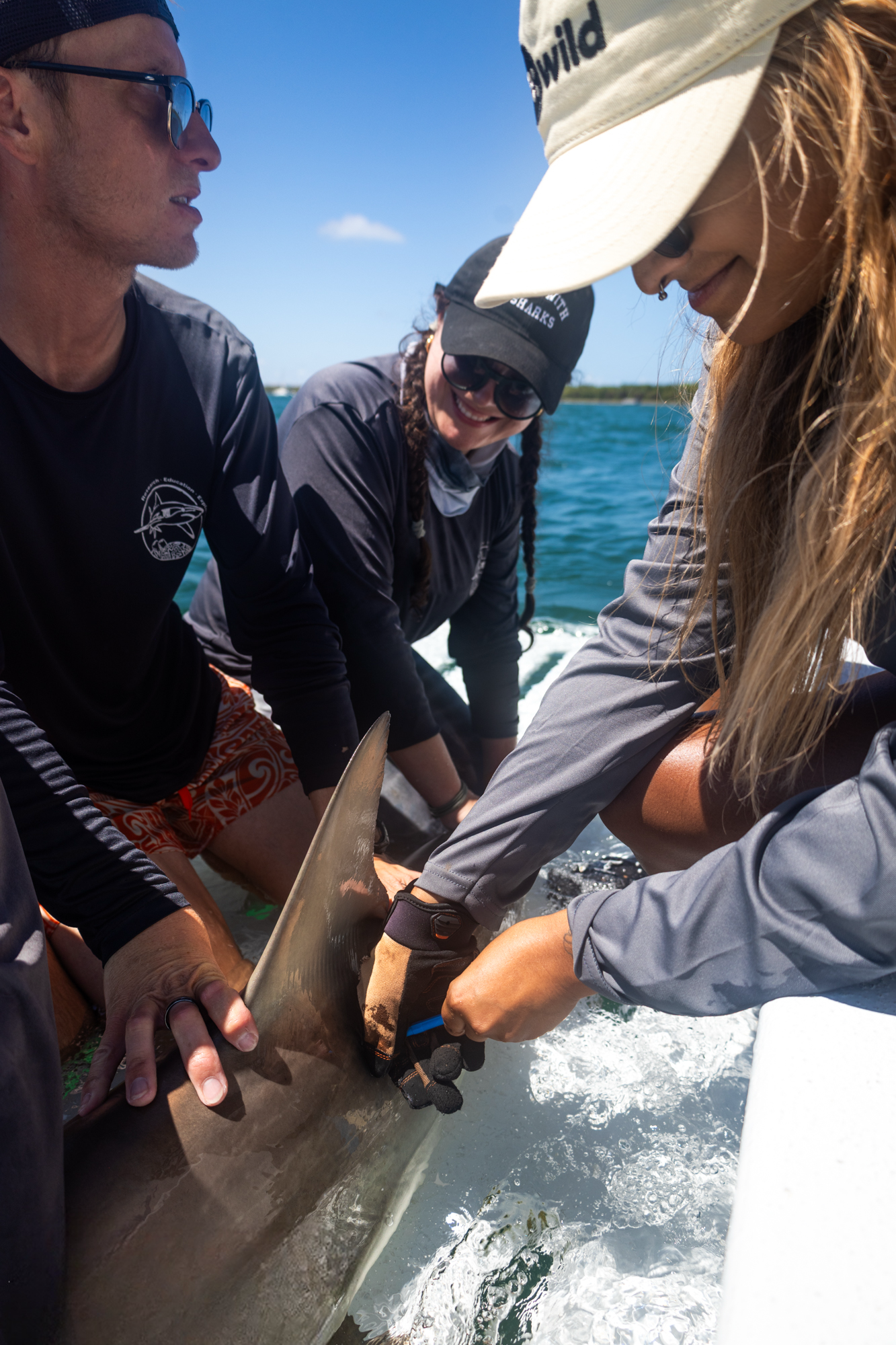Why Sharks Are the Ocean’s Gardeners (and Why That Matters to Us)
Nurse shark swimming over seagrass
More Than Just Predators
When most people hear the word “shark,” they think of teeth, speed, and danger. Hollywood has done a great job of painting sharks as villains, but in reality, sharks are vital players in keeping our oceans healthy. They’re not just apex predators — they’re gardeners, caretakers, and regulators of marine ecosystems. Without them, ocean habitats would unravel in ways that affect not just sea life, but people too.
Sharks and Seagrass: A Surprising Connection
One of the best-kept secrets in marine biology is the relationship between sharks and seagrass meadows.
Take the bonnethead shark (Sphyrna tiburo), a small hammerhead species found along the Florida coastlines. Scientists discovered that bonnetheads don’t just eat crabs and shrimp — they also digest seagrass. In fact, they’re the first known omnivorous shark!
Why does that matter? Because their grazing and movement through seagrass beds helps recycle nutrients and keep these ecosystems healthy. Think of bonnetheads as underwater lawnmowers, trimming seagrass and preventing overgrowth. This creates space for juvenile fish, sea turtles, and even other shark species to thrive.
Seagrass below the surface
Apex Predators and Balance
Beyond bonnetheads, larger sharks like tiger sharks, bull sharks, and great whites regulate prey populations. By keeping mid-level predators (like groupers or rays) in check, sharks prevent those species from overfeeding on seagrass grazers like sea turtles or dugongs.
This “top-down control” is critical. Without sharks, ecosystems can spiral into imbalance. Imagine a coral reef where predators are gone — suddenly, herbivorous fish are eaten too quickly, algae grows unchecked, and corals can’t compete. Over time, the reef collapses.
Sharks = ecosystem managers. They keep the web balanced from the top down.
Infographic of a marine food web
What Happens When Sharks Disappear?
Sadly, shark populations worldwide are declining fast — nearly 1 in 3 shark species is threatened with extinction due to overfishing, finning, and habitat loss.
Here’s what happens when sharks vanish:
Seagrass decline: Without bonnetheads and tiger sharks regulating grazers, seagrass meadows shrink. That reduces “blue carbon” storage, accelerating climate change.
Fishery collapse: Prey populations boom and bust, hurting commercial fisheries that rely on balance.
Tourism losses: Many coastal economies depend on healthy reefs and shark diving tourism.
Ripple effect on humans: From seafood supply to storm protection, degraded ecosystems put people at risk.
Sharks aren’t just an ocean issue — they’re a human one.
Sharks as Climate Allies
Did you know sharks are part of climate change solutions?
Healthy shark populations protect ecosystems like seagrass meadows and mangroves that lock away carbon. These are called blue carbon habitats, and they store carbon up to 35 times faster than tropical rainforests.
By keeping these habitats healthy, sharks indirectly help slow the pace of climate change. Protecting sharks = protecting the planet.
How We Can Help
The good news? There are ways to turn the tide.
Support sustainable seafood: Look for MSC-certified products and avoid shark fin soup or products with shark cartilage.
Choose eco-tourism: Shark diving operations that use ethical practices support conservation and local economies.
Raise awareness: Share the real story of sharks with your community — that they’re gardeners and guardians, not monsters.
Get involved with research: At The Salty Lab, every piece of ocean-inspired merch funds shark tagging, seagrass research, and conservation projects.
Shark workup with TSLRC CEO & Founder
Guardians, Not Monsters
Sharks aren’t here to terrify us — they’re here to keep the ocean thriving. From trimming seagrass to keeping prey in check, sharks are the gardeners and guardians of the sea. When we protect them, we protect everything from coral reefs to climate stability.
Next time you see a shark, remember: it’s not just a predator. It’s a vital caretaker of our planet’s largest ecosystem.






